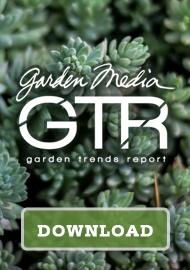For today’s Trending Thursday post, we’re taking a look back to 2011 where we first identified indoor  gardening as an emerging trend.
gardening as an emerging trend.
Though the concept of owning and maintaining indoor plants wasn’t new, we began to recognize that houseplants had more than just a pretty face - they were also keeping us healthy in a variety of ways.
Continue reading to learn more about the indoor gardening trend.
 Indoor Gardening
Indoor Gardening
In 2011, people extended nature’s influence by bringing the outdoors in with houseplants.
With “steampunk” Victorian hipster décor popular with everyone from young urbanites to upscale suburban homes, orchids, ferns and palms were wildly popular. People flocked to plants like orchids because they were chic, easy-to- grow and worked hard to clean indoor air from volatile organic compounds.
Consumers learned more about the health benefits of indoor houseplants from campaigns like O2forYou from Costa Farms. From cleaning the air, to helping improve concentration, indoor houseplants were easy on the eyes, mind, body and spirit.
Flash Forward
Flash forward to 2016, and indoor gardening now takes many forms. The health benefits of houseplants are now as popular as the plants themselves. New research has strengthened the idea that plants are good for you.
Studies from the US Environmental Protection Agency have found that levels of indoor air pollution can be two to five times higher — and in some cases 10 times more polluted — than outdoor air.
Houseplants such as bromeliads, spider plants and dracaena, remove the harmful compounds frequently found in homes and offices, produced by cleaning supplies, paint, furniture glue and nail polish remover.
New technology has allowed Indoor gardening to evolve to a point where Mother Nature isn’t in charge. Hydroponic products and systems like the GrowBox and GrowWall from OPCOM Farm make it easy to produce high yields of plants and food 365 days-a-year. Growing hydroponically without soil is slated to be the new norm.
As indoor growing technology becomes more sophisticated, gardens will continue to pop up in unexpected places.















